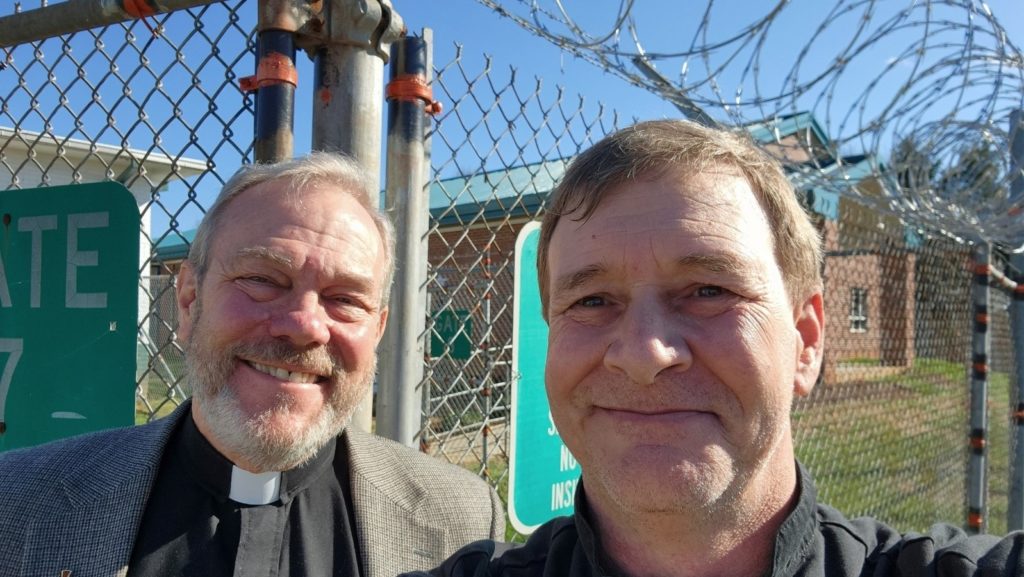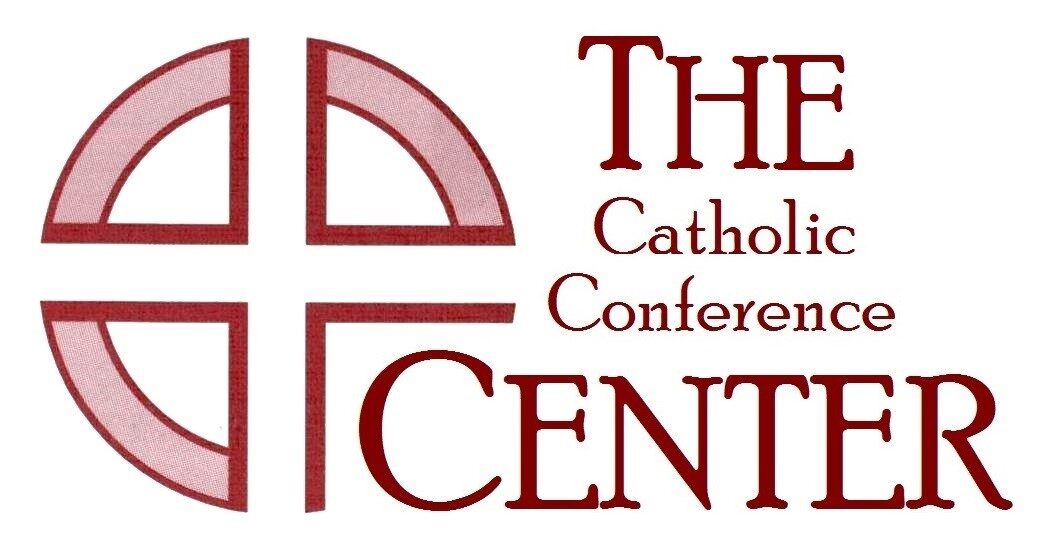
“Highly favored and blessed.” That was the response from an inmate at Catawba Correctional Center when I asked him, “How are you doing?” I thought it was a curious response coming from a person in prison. But maybe not. What brought me there that day was a holiday meal for 240 inmates, provided by our chef at the Catholic Conference Center where I work and a couple of other churches. We brought all the sides, and the other churches brought the meats. Everybody pitched in on the desserts. As this man went through the line to fill up his plate with honey ham and cheesy mac, ‘delicacies’ he hasn’t seen in years, his response echoed Gabriel’s greeting to Mary at the Annunciation, “Hail, highly favored one”. And that was before he even got to the banana pudding! Wouldn’t it be great if we all entered the New Year with the same attitude?
The meal was the beginning of a new chapter for the men at the correctional center. Because of pandemic lockdowns, the inmates had not seen volunteers for almost three years. As a long-time volunteer myself, my heart has gone out to these men. Sometimes the volunteers are the only people who see each one as a real person, not as an offender, addict, felon, or criminal. The meal turned the page on that bleak period with a new narrative. More volunteers may come and bring hope (and maybe food) once again to people in captivity.
I see a little parallel between this experience and our Christmas experience. Jesus came “to set the captives free.” (Lk 4:18) How did he do this? He came as food. Born in a feeding trough (manger) in a town called “House of Bread” (Bethlehem), he came to set us free from those things that keep us captive. He came to give hope to the hopeless, and begin a new chapter for all the people of the world. He came so that we may always and ever be “highly favored and blessed”.
Connecting the two experiences, I wonder: What is still keeping me captive? Just as the correctional center made changes at the beginning of the pandemic, so did I. Some of the behaviors I cultivated during the last two and a half years initially kept me safe, but now are keeping me captive: less networking, fewer social engagements, more isolation. And I think as a consequence, less hope.
Maybe the Christmas message for me is to recognize Jesus came as food for a hungry world and give all its ‘captives’ a renewed identity as “highly favored and blessed.”
